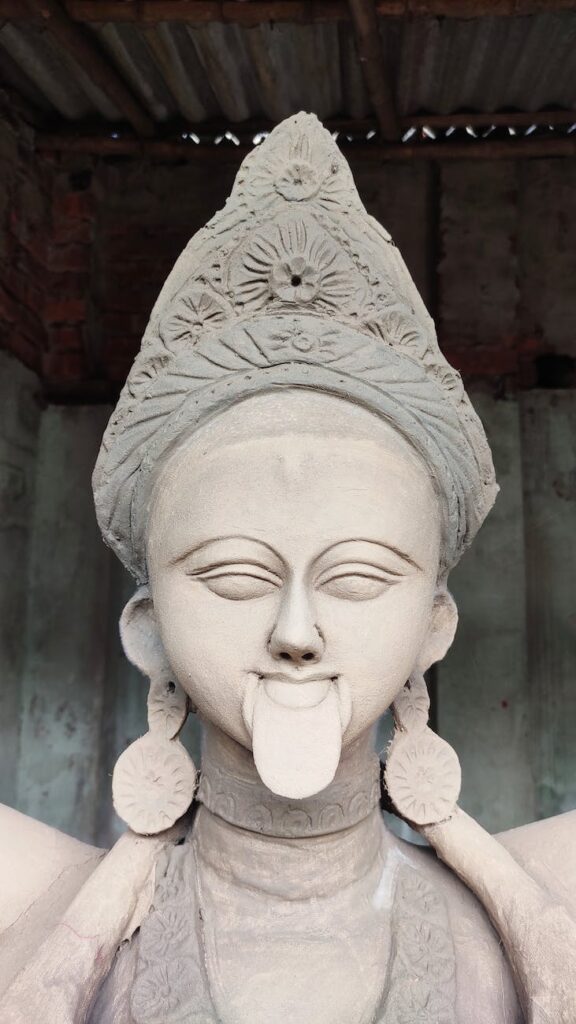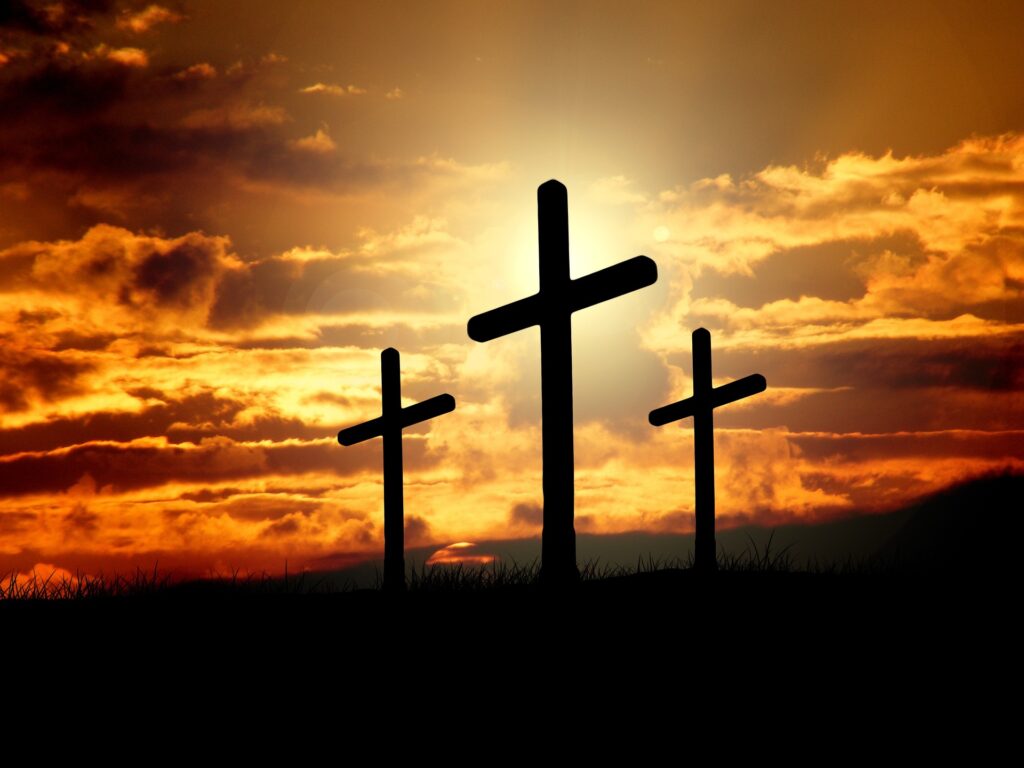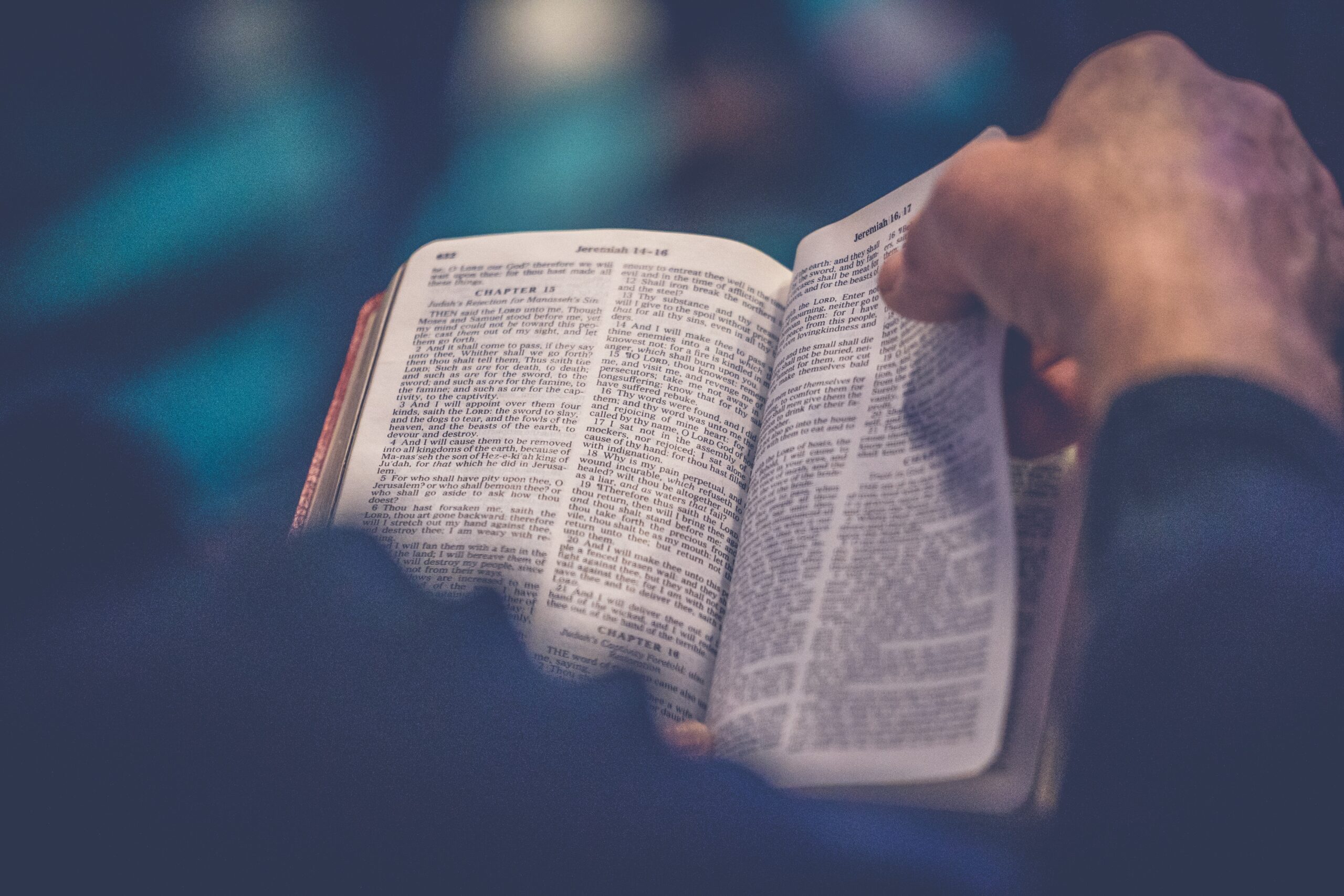The Allure and Vanity of Idolatry
It will always be an irony that humans, with all our superior intelligence, will choose to create idols out of materials available in nature and then worship them as gods or as representatives of the gods.
Isaiah also wondered about this. The carpenter cuts down some trees and burns half of it in the fire to warm himself and make bread to eat. Then he takes the other half and makes a god that he will worship. To this pile of wood he cries, “Deliver me, for you are my god” (Isaiah 44:9-20). The very things over which he acts as creator becomes his god to whom he bows.
Despite how ironic all this is, it is true, as John Calvin said, that “the human mind is, so to speak, a perpetual forge of idols.”[1] This is why even as early as Genesis 31:19, Moses was already speaking of idolatry as a “common vice.”
But idolatry is not only about the carpenter and the goldsmith fashioning physical idols. According to Paul, greed (covetousness) is idolatry (Colossians 3:5) and Jesus referred to Mammon as a rival god (Matthew 6:24). Said simply, the essence of idolatry is the worship (service, love, and devotion) of created things in the place of the creator (Romans 1:25).
So, why do we all worship idols when it does not make any sense from a purely intellectual perspective? This is how Richard Lints answered this question: “Idolatry was not in the first instance a cognitive error (believing in other gods) but a fallacy of the heart (yearning for control).”[2]
In essence, while idolatry might not make sense from an intellectual perspective, it makes sense from a heart/emotional/psychological perspective.
How so?

The allure of idolatry
From Lints’ book, I can identify at least three reasons for the allure of idolatry: the human search for safety, control, and significance.
Safety
Why did Israel create and worship its first idol? They wanted security.
They knew that God had delivered them from Egypt and performed many miracles amongst them. But when Moses, the representative of God, went away for days, they became agitated (Exodus 33:1). They wanted Aaron to make them gods who will go before them. That is, they recognised that the journey to the promised land would be perilous and they needed something amongst them that would provide a sense of safety and security. In fact, Lints said that the golden calf is a “molten image of a cow that will give them food in the desert.”[3]
Referencing this story, Calvin said that “idolatry has its origin in the idea which men have, that God is not present with them unless his presence is carnally exhibited.”[4] “In consequence of this blind passion, men have, almost in all ages since the world began, set up signs on which they imagined that God was visibly depicted to their eyes.”
We see this also in 1 Samuel 4. Israel had just lost a battle against the Philistines. They rightly agreed that the reason for the loss was the absence of God amidst them (verse 3). But what solution did they proffer? Well, they decided to take the Ark of the Covenant to the battlefield. In essence, they wanted something tangible that would guarantee their safety and security.
Let’s leave the physical idols a bit. Why do men worship Mammon? For one thing, it provides a sense of safety and security. The rich fool said to himself: “Soul, you have ample goods laid up for many years; relax, eat, drink, be merry” (Luke 12:19). As Qoheleth puts it, “the protection of wisdom is like the protection of money” (Ecclesiastes 7:12). Even Solomon acknowledged that the “rich man’s wealth is his strong city” (Proverbs 10:15).
While their case is often exaggerated, scholars of the history and psychology of religion have identified this desire for security as a significant motive in the development of religion. [5]Confronted by many things in nature that threaten their existence, communities create idols and worship them as representatives of the god in charge of that particular natural phenomenon (thunder, fertility, lightning, harvest). By appeasing these gods, vis-a-vis the idols, they find a sense of safety and security.
Indeed, it is impossible to chronicle the decline of religion in some quarters without treating the conquest of nature that began with the philosophy of Francis Bacon as a significant factor. As nature became less threatening, the gods associated with them (and thus their representatives, the idols), became less important, leading to a “world without windows,” in the words of Peter Berger.
Control
While there is a remnant of desire for their Creator in humans, according to Lints, yet there is “an emerging new desire to replace their Creator with something in the created order over which they exercise control.”[6]
According to him, this also explains Israel’s constant pursuit of the idols of other nations. In his words, “the worship of other gods by Israel reflected an insatiable need for love detached from any ties of faithfulness”[7] Again, “one who worships the living God does not possess him for one’s own purposes. But those who create an idol seek to possess it for their own purpose.”
This goes back to the Psalmist’s critique of idolatry in Psalms 115. On the one hand is the living God who is sovereign and does all that he pleases. On the other hand are idols of silver and gold who are the works of human hands; they have mouths but can’t speak, eyes but can’t see, ears but can’t hear, hands but can’t feel, and feet but can’t walk.
A sovereign God who reveals himself, issues commands, and requires covenant faithfulness is outside the control of humans. But dumb idols that cannot speak are under our control. If we like unrestrained sex then we can say the idols are in favour of it; we can even create a cult out of it (temple prostitution) as the ancient Greeks and Romans did. These idols will not show themselves in thunder and lightning to say, “thou shall not commit adultery.”
Yes, we appease the gods that the idols represent. Yes, we even impose rigid asceticism or what have you on ourselves. But in the end, it is we imposing it on ourselves. That is called control. Our idols are as ‘strict’ as we want them to be. If we want homosexuality, pedophilia, sexual orgies, etc., we can have them all as long as we remember to make the required sacrifices and attend the festivals.
Significance
While idols are meant to be images of the gods, they end up being images of men. Just as God created us in his image, we create idols in our image. We no longer seek our significance from being images but from being image makers.
This ties into Israel’s desire to be like the other nations. This was the reason why they wanted a king (1 Samuel 8:5,20) and it was also a fundamental motivation for their continuous dalliances with the gods of other nations. If other nations found their significance in being image makers and having gods that were physically present (and also controllable), why not Israel?
Modern man should relate to this desire for significance. Nietzsche told us that there is no objective meaning to be discovered but only the meanings that we create for ourselves. And we have run with this idea, believing that we are the makers of our own destiny, the captains of our ships.
More importantly, we now believe that identity is flexible, something we can create by ourselves. The conquest of nature is no longer physical, it has now become moral. This is why LGTBQ+ is no longer a mere lifestyle preference but an identity.
If we are the image of God, there is a limit and boundary and our significance and meaning are rooted in another. But if we are image makers, we can fashion our own destinies, meanings, and identities. If we are tired of finding identity in the idol of individualism, we can switch to communitarianism.
The vanity of idolatry
How successful have we been with our idolatry though? Have we found safety, control, and significance?
Safety
The golden calf episode was met with a plague that destroyed many (Exodus 32:35). Israel’s constant frolicking after the idols of other nations only led to various defeats in battle, among other judgements (see Judges).
“The idols could grant no protection to Israel in the face of the threats that surrounded them. Nor could they answer Israel’s pleas for help and mercy. The idols promised great blessings but could not deliver on those promises.”[8]
The gods of the nations don’t exist and so there is no distinction between the gods and the idols that represent them (Psalms 96:5). They were all nothing, the mere creation of humans. The only living God was with Israel and as long as they were faithful to him, they were prosperous and victorious over the other nations.
It’s the same with our modern idols. When death came, the rich fool’s idol could not save him (Luke 12:20). Even before death, Solomon told us that wealth does grow wings and fly away (Proverbs 23:5), which is why Paul said our hopes should be on God and not on wealth (1 Timothy 6:17-19). Likewise, beauty fades, intelligence fails, fame fails, and health fails.

Control
Another irony of idolatry is that while it seems that we are in control of our idols – due to all the liberties they give us (that we give ourselves) – they are actually the ones in control. Why else would idolaters be willing to sacrifice their own children to Molech (Leviticus 18:21)?
As nature becomes more hostile even after all our sacrifices, we begin to go deeper looking for the next most valuable thing to sacrifice until even our children become dispensable. Who is now in control? Yes, we will have our cultic prostitution and homosexuality but with any uncontrollable violence from nature, all the things we treasure the most become flames.
“Their grasp for control has in fact resulted in a loss of control,” said Lints. “They are given over to the very idols in which their hopes lie. Paul is insistent that idols will not deliver on their promises. Instead, they create consuming passions in which there is no deliverance.”[9] Also, “they produced loyal subjects who would not question their impotence” [10]
In the end, the supposed freedom turns out to be nothing but bondage and slavery.
We see the same thing with non-physical idols. We think money gives us control but later we realise that it is the one in control of us. It’s the same thing with sex, beauty, health, among others. When we elevate these things to idol status, they take the wheels of our lives until we no longer recognise who we are. In pursuit of one form of liberty (“I can do what I like”) we end up losing a more fundamental one (self-governance).

Significance
After inveighing against the idols of the nations, the Psalmist concluded in Psalms 115: “those who make them become like them, so do all who trust in them” (verse 8).
According to Barnes, this means that idol worshippers become stupid, senseless, and irrational like the idols they worship.[11]
In essence, we make idols in our image and then they make us in their image. We become like our idols: stiff-necked, hard-hearted, blinded, and deaf. As Lints puts it, “a dead idol is now imprinted in the living rebellions of the people.”[12] The idols have “robbed them of their identity” as living people, sucking the life out of their hearts.
So, while seeking significance in being image makers, they become dumb and dead like their idols. How many worshippers of money have become cold, dead, and indifferent as the money they worship?
The identities that we create for ourselves become “endlessly fragile,” as Lints puts it. When the money flies away or someone else becomes richer, the identity created around money becomes fragile, and a sense of meaningless and hopelessness results. As long as we depend on anything temporal for significance, we are always at risk of living a meaningless life.
“Christians run an enormous risk if they interpret their identity as simply an arbitrarily chosen one among the myriad of possible ones. If our raison d’etre emerges from the plastic narratives of our times, we will be endlessly tossed to and fro by the winds of our own dissatisfactions.”[13]
And in a bid to protect that identity, we yield to decadence as we become the worst version of ourselves. One of the ways this manifest is anger. “When anything in life is an absolute requirement for your happiness and self-worth, it is essentially an ‘idol,’ something you are actually worshipping,” said Tim Keller. “When such a thing is threatened, your anger is absolute. Your anger is actually the way the idol keeps you in its chains.”[14] (See also James 4:1-3).

Finding fulfilment in the living God
According to Calvin, the pervasiveness of idolatry is evidence that the knowledge of God is imprinted in the hearts of everyone (what he calls the Sensus Divinitatis). When men choose to worship wood and stone, it shows “how very strong the impression of a Deity must be; since it is more difficult to obliterate it from the mind of man, than to break down the feelings of his nature.”[15]
Barnes agrees: “The worship of an idol shows at least that there is some religious tendency in the mind; some conviction that God ought to be worshipped; some aspiration after a proper object of worship; some appreciation of the true dignity and rank of man as made for worship.”[16]
This is in line with what we find in Acts 17. Paul acknowledged the religious nature of the Athenians as they made multiple idols and even dedicated one to the unknown God. The religious nature is what Al Wolters will call structure while idolatry is direction.[17] Every structure (every created thing) can be rightly or wrongly directed even if it is in itself neutral.
So, Paul sought to redeem and redirect the Sensus Divinitatis that had been corrupted in the service of idols by pointing the Athenians to the only one living God, “the God who made the world and everything in it” (Acts 17:24).
The idols are dumb; the gods they are meant to image don’t exist. There is only one God and he made the world and everything in it. There is no god of thunder, fertility, or harvest; no, there is only one God who is sovereign over all.
And instead of vainly seeking safety, control, and significance in dumb idols, we should turn to this living God.
Safety
First, it is this living God that “gives to all mankind life and breath and everything” (Acts 17:25). He is the one who gives rains from heaven, fruitful seasons, and food (Acts 14:17). All good things come from him (James 1:17). In Paul’s words, he is the one “who richly provides us with everything good to enjoy” (1 Timothy 6:17).
Second, he was the one who led Israel out of Egypt and into Canaan. It was not the lifeless golden calf of Baal or Ashtoreth. God was the pillar of cloud and fire and the mighty one who subdued their enemies. He was their real safety and security.
Third, God is the one who created us and made us rulers over creation (Genesis 1:28-31). Instead of worshipping untamed nature, he created us to exercise dominion over it and bring it to the service of its maker.
“The earth had been completely unformed and empty; in the six-day process of development God had formed it and filled it – but not completely,” according to Al Wolters. “People must now carry on the work of development; by being fruitful they must fill it even more; by subduing it they must form it even more. Mankind, as God’s representatives on earth, carry on where God left off.”[18]
It is by virtue of how he created us and sovereignly directs us that human cultures and civilisations have developed. And this is why, unlike idols that depend on the power of untamed nature, his existence cannot be undermined by scientific and technological progress. In the final analysis, he is the creator of science and technology.

Control
Unlike our idols, we cannot possess or own the living God. To quote Lints again, “one who worships the living God does not possess him for one’s own purposes.”
Yet, God has in one way already satisfied our desire for control by making us his appointed rulers of creation. However, this control is not absolute. First, we are to respect creational norms (Aristotle’s final causes) by not transgressing them. Second, we are to recognise that we are only God’s vice-regents and must rule creation to his glory.
Furthermore, God also heals our idolatries through the redemption that is in Christ. Metals, woods, money, sex, health, etc., are all structures. It is the sin in us that corrupts all these things and turns them into idols that end up corrupting and enslaving us. There is nothing fundamentally wrong with the world God created.
As I wrote in another article, grace does not destroy nature, it perfects it by destroying sin. Therefore, by saving us from sin (its guilt and power) and bringing us into his kingdom, God frees us from idolatry so we can enjoy his good gifts without making idols out of them.[19] We can have control without being controlled.

Significance
God commanded Israel not to make any image of him (Exodus 20:4). Why should they make carved images of wood and gold when they themselves were his image?
The gods do not exist so their images (idols) are vain; the living God exists and we are his image (Genesis 1:27). As an image, humanity is meant to reflect God since the fundamental function of an image is to reflect the original.
“‘Image’ or ‘likeness’ language argues for a dependence upon an original,” said Lints. “Whatever else may be said of an image, it must be clear that the image depends upon whatever it is an image of for its meaning.”[20]
Consequently, “the reflection draws attention to the reality that there is a unique relationship of humankind to their Creator, and further, this relationship is a defining relationship – it defines humankind in relationship to God.”[21] This is a “relationship of worship or honour” and humankind “finds its telos in the honouring relationship to the original (God the creator).”
We fell from this height when Adam and Eve sinned. Though we still reflect God in some way (especially in our creativeness), the reflection is inaccurate in many ways, polluted by sin, especially idolatry.
God became flesh to save us from sin and corruption and also to reveal what the perfect image of God looks like. Christ is that image (2 Corinthians 4:4, Colossians 1:15). In him we see the fullness of the Godhead (Colossians 2:9).
Consequently, as humans, our identity and significance are rooted in a relationship with and reflection of God. And Christ is the ideal of what those two things look like. This is why Paul described sanctification as being conformed to the image of Christ (2 Corinthians 3:18).
In essence, our significance and identity should be derived from the fact that we are God’s image, not from what we possess or what we are able to create. Also, the fundamental motive and driving principle of our lives should be to improve our relationship with God in Christ and to better reflect him to the world just as Christ did.
Finally, none of these can be separated from the calling of the church, the body of Christ. It is as part of this body that we come to know God more, learn to relate with him as we ought, and act as his image in the world.

Conclusion
Idolatry makes no sense but neither does it fulfil the emotional and psychological needs that draw us to it. Only the living God can do that. It is only by turning back to him from all our idols that we can be fulfilled and become the people that God wants us to be.
A time is coming when we will be fully conformed to Christ’s image; we’ll be like him when we see him as he is (1 John 3:1-3). By then, we will be perfected and we will perfectly enjoy our relationship with the living God even as we perfectly reflect him as he intended.
It is this hope that we must continue to nurture in our hearts as we say no to all the idols that tempt us in this world (physical or not). We must continue to find our safety in him, act as his vice-regents, and derive our identity and significance in the fact that we are his image.
“Dear children, keep yourselves from idols” (1 John 5:21)
Cast down, O God, the idols
that hold us in their power,
the empty gods we worship
when darkness has its hour.
We bow to other masters
and by their promise live.
Redeem our wayward passions;
our rebel wills forgive.
In vain we search for meaning
where transient joys abound,
and seek the soul’s contentment
where peace cannot be found.
We wander, lost and homeless,
in endless, aimless quest,
our hearts forever restless,
until in you they rest.
O God, we have our being
in you and you alone.
Recall us from our wand’rings;
reclaim us as your own.
Restore in us the image
revealed in Christ, your Word,
till heart and will pay homage
to him, our God and Lord.
Footnotes
[1] John Calvin, Institutes of the Christian Religion, Book 1, Chapter 11, Section 8.
[2] Richard Lints, Identity and Idolatry (Illinois: InterVarsity Press, 2015), p. 86.
[3] Ibid, 91.
[4] Calvin, Institutes, Book 1, Chapter 11, Section 8.
[5] For a treatment on why this story should not be absolutised, see Herman Bavinck, Reformed Dogmatics, Abridged in one volume (Grand Rapids: Baker Publishing, 2011), p 49-61.
[6] Lints, Identity and Idolatry, p. 80
[7] Ibid, 100.
[8] Ibid, 82.
[9] Ibid, 111.
[10]Ibid, 113.
[11] Albert Barnes, Notes on the Whole Bible. Available at: https://www.studylight.org/commentary/psalms/115-8.html#verse-bnb
[12] Lints, Identity and Idolatry, 92.
[13] Ibid, 162.
[14] Tim Keller, Counterfeit Gods (Maryland: Penguin Books, 2014)
[15] Calvin, Institutes, Book 1, Chapter 3, Section 1.
[16] Barnes, Notes.
[17] See Albert Wolters, Creation Regained (Michigan: William B. Eerdmans Publishing, 2005), 87-114.
[18] Ibid, 41.
[19] See Joe Rigney, The Things of Earth (Illinois: Crossway Publisher, 2015).
[20] Lints, Identity, 59
[21] Ibid, 60.
[22] Trinity Psalter Hymnal (2018), Page 467. Available at: CAST DOWN, O GOD, THE IDOLS | Digital Songs & Hymns (digitalsongsandhymns.com)


